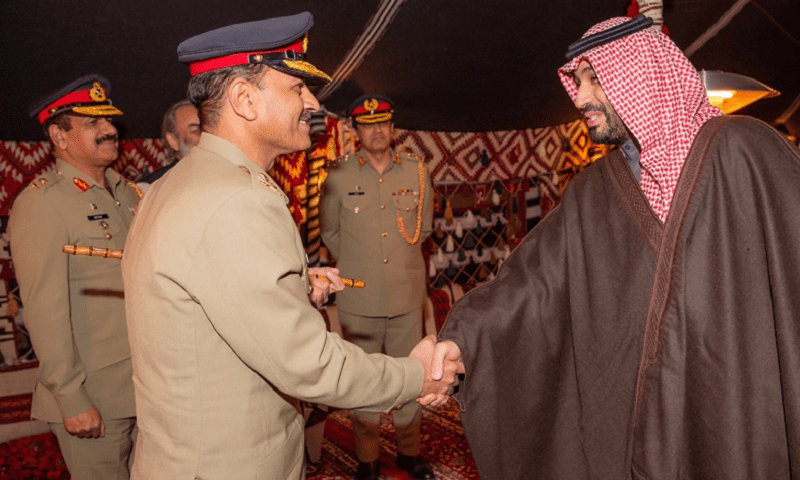Latest News
COAS General Asim and the Saudi Crown Prince vow to strengthen defence cooperation.

Latest News
The bail petition of Parvez Elahi in the Jinnah House attack case has been rejected by the ATC.
Business
The International Monetary Fund (IMF) and Pakistan have initiated discussions at the policy level.
Latest News
Iran has officially announced a period of national mourning following the tragic death of Raisi in a helicopter crash.
-

 Latest News46 mins ago
Latest News46 mins agoPakistan and Turkey have reached an agreement to enhance their bilateral commerce to a total of $5 billion.
-

 Latest News42 mins ago
Latest News42 mins agoStatement from the chief meteorologist regarding the Karachi heatwave:
-

 Latest News1 hour ago
Latest News1 hour agoAitchison College appoints a new principal.
-

 Latest News1 hour ago
Latest News1 hour agoAbbasi says that Pakistan’s functioning will not be efficient without implementing improvements in the system.
-

 Latest News52 mins ago
Latest News52 mins agoAdditional Pakistani students evacuated from Bishkek, which has been affected by unrest.
-

 Latest News37 mins ago
Latest News37 mins agoThe matriculation exams in Karachi have been rescheduled.
-

 Business17 mins ago
Business17 mins agoThe International Monetary Fund (IMF) and Pakistan have initiated discussions at the policy level.
-

 Latest News25 mins ago
Latest News25 mins agoIran has officially announced a period of national mourning following the tragic death of Raisi in a helicopter crash.













